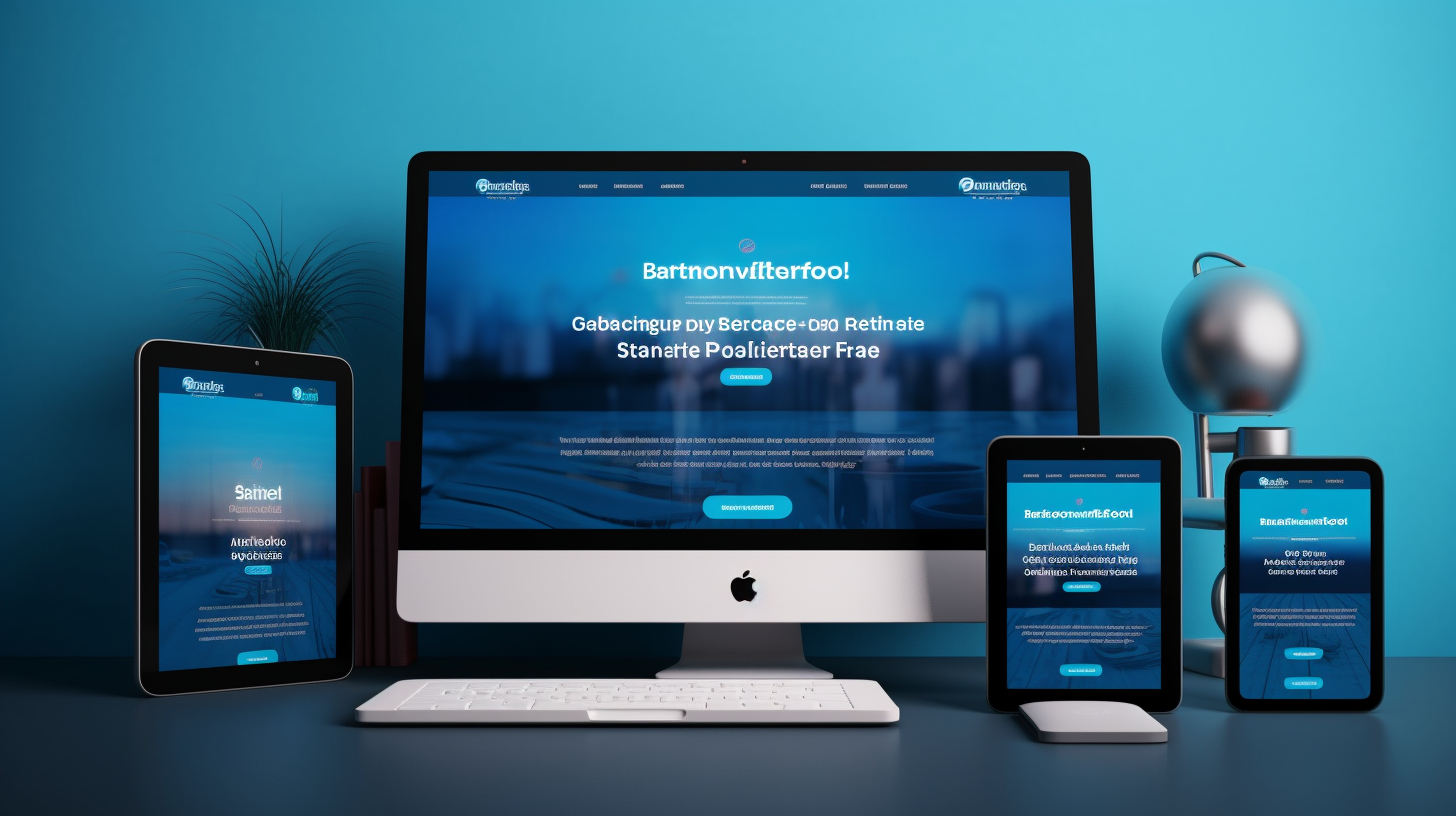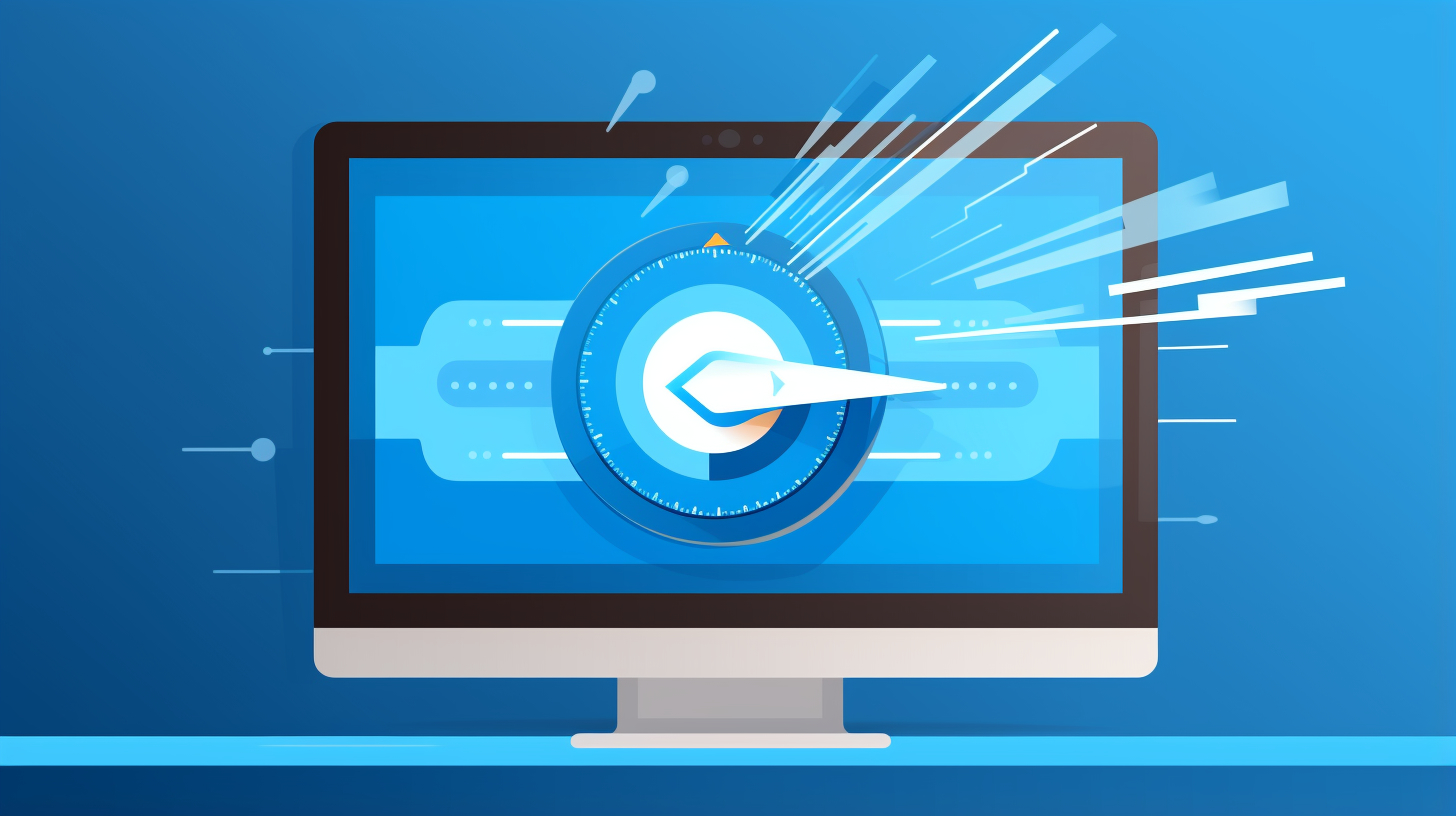Welcome to the world of web development! As a freelance web developer, you have the power to create stunning websites and help businesses establish a strong online presence. But alongside the excitement of building beautiful websites, it’s essential to ensure that your creations are secure and protected from cyber threats.
In today’s digital era, cyber threats are rampant, and the consequences of a data breach can be catastrophic. As a freelance web developer, it is your responsibility to empower your websites with ironclad security to safeguard your clients’ valuable data and protect their online reputation.
In this article, we will explore the importance of website security and provide you with valuable tips to enhance the security of your web development projects. From understanding cyberspace threats to implementing best practices and staying updated with the latest security trends, we’ve got you covered. So, let’s dive in and learn how you can make your websites impenetrable fortresses in the face of cyber attacks.
Understanding Cyberspace Threats
In our increasingly interconnected digital world, web developers need to be aware of the numerous threats that can compromise website security. These threats not only pose risks to the integrity of your website, but also to the sensitive data of users and businesses that rely on your services. Let’s dive into some of the key cyberspace threats you should be aware of:
Malware Threats
- 300,000 fresh malware instances are generated daily, with an average of 49 days to detect[1]. Malware refers to malicious software that can infiltrate websites and infect user devices, causing harm such as data theft, privacy breaches, and even financial loss.
- Protecting your website from malware is crucial to maintain a secure online presence. Make sure to implement robust security measures, such as utilizing strong passwords, employing reliable security plugins, and regularly scanning your website for any signs of malicious activity[2].
Cybercrime Cost
- Cybercrime will cost businesses $10.5 trillion annually by 2023[1]. The financial impact of cybercrime on businesses cannot be underestimated. Cybercriminals are constantly evolving their techniques to exploit vulnerabilities in websites and networks, making it essential for web developers to stay vigilant and proactive in implementing security measures.
- Investing in robust security solutions will not only protect your reputation but also safeguard your clients’ valuable data. Remember, prevention is much more cost-effective than dealing with the aftermath of a cyber attack.
Cyber Fear Among Companies
- 68% of companies lack any form of cyber liability[1]. Sadly, many organizations don’t prioritize cybersecurity until they fall victim to an attack. However, the consequences of neglecting security can be severe, leading to reputational damage, financial losses, and potential legal liabilities.
- As a freelance web developer, it’s essential to educate your clients about the importance of website security. Highlight the potential risks and consequences of not implementing robust security measures. By doing so, you can position yourself as a trusted advisor and help them protect their online presence.
Threat to Microbusinesses
- Only 68% of micro-businesses list cybersecurity as a high priority in 2023[1]. Micro-businesses often underestimate the potential impact of cyber threats due to limited resources and lack of awareness. However, these businesses are not immune to attacks and can be particularly vulnerable targets.
- As a web developer, you play a crucial role in educating micro-business owners about the importance of cybersecurity. Offer them guidance on implementing security best practices, such as using strong passwords, keeping software up to date, and regularly backing up their website data.
Remember, securing your website is not a one-time task but an ongoing effort. By staying informed about the latest cyberspace threats and implementing best practices, you can protect your website, your clients, and their valuable data.
[1]: Managed-WP: Six of the Best WordPress Security Plugins for Protecting Your Website in 2023
[2]: Managed-WP: Top 10 WordPress Security Plugins: Comparing Wordfence, MalCare, and More
Global Impact of Data Breaches
Data breaches have become a growing concern in our digital age, affecting individuals, businesses, and organizations around the world. These breaches pose significant risks to sensitive information, leading to financial losses, reputational damage, and sometimes, legal consequences. Let’s take a closer look at the global impact of data breaches and the alarming statistics surrounding this issue.
The global average cost of a data breach in 2023 was $4.45 million[1]. This staggering figure takes into account the expenses involved in incident response, damage control, investigations, and the long-term consequences such as customer churn and stock price declines.
Unfortunately, cybercriminals are becoming more sophisticated with their attacks, resulting in a significant increase in the number of records stolen. It is estimated that over 33 billion records will be stolen by cybercriminals by 2023, marking a 175% increase from 2018[2]. This sharp rise in stolen records reflects the concerning reality that our personal data is becoming more vulnerable to unauthorized access.
Moreover, data breaches are not limited to large corporations. 52% of organizations report suffering a recent data breach, up from 49% the previous year[3]. This increase highlights the pervasive nature of the cyber threat landscape, affecting businesses of all sizes. As a freelance web developer, it’s crucial to recognize the importance of data security and take proactive measures to protect your clients’ websites.
To address these challenges, it’s essential to stay informed about the latest trends and best practices in cybersecurity. By implementing robust security measures, you can safeguard your clients’ data and ensure the integrity of their online presence. Here are a few key steps you can take to strengthen the security of the websites you develop:
1. Password Protection: Strong passwords are the first line of defense against unauthorized access. Encourage your clients to use unique and complex passwords for their website accounts, and consider implementing multi-factor authentication for an extra layer of security[4].
2. OWASP Top 10: Familiarize yourself with the OWASP (Open Web Application Security Project) Top 10, a list of the most critical web application security risks. By understanding these vulnerabilities, you can implement appropriate security measures and minimize the risk of exploitation[5].
3. Software and Operating Systems Updates: Regularly updating software and operating systems is vital to ensure the latest security patches are in place. Outdated software can leave websites vulnerable to known vulnerabilities, making them easy targets for cybercriminals[6].
By adopting these best practices, you can fortify your clients’ websites against potential cyber threats and mitigate the risk of data breaches. As a freelance web developer, it is your responsibility to prioritize the security of the websites you create.
Remember, protecting your clients’ data is not only a good business practice, but it also builds trust and credibility, setting you apart from competitors. Take the time to educate yourself about the latest security trends and invest in the necessary tools and technologies to keep your clients’ websites secure.
In the fast-evolving world of cybersecurity, staying ahead of the curve is crucial. Continuously assess your security measures, keep up with industry best practices, and leverage automated solutions to enhance website security and reliability[7]. By doing so, you can empower your website with ironclad security and provide your clients with the peace of mind they deserve.
The threat landscape may be constantly evolving, but as a skilled web developer, you have the power to make a difference in the fight against data breaches. Let your commitment to security be a testament to your professionalism and dedication to excellence.
[1]: Article on The Future of Cybersecurity
[4]: Article on The Importance of Strong Passwords
[6]: Article on Software and Operating Systems Updates
[7]: Article on Automated Solutions for WordPress Security
Web Development and Security Best Practices
When it comes to web development, security should always be a top priority. Your website is a valuable asset, and keeping it safe from threats is crucial. By implementing the right practices, you can protect your website and ensure a secure online experience for your visitors. Here are some web development and security best practices to consider:
Password Protection
One of the first and most fundamental considerations for secure website development is password protection. Passwords are the key to accessing your website’s backend and sensitive data. To ensure the strength of your passwords, keep the following tips in mind:
- Use a combination of uppercase and lowercase letters, numbers, and special characters.
- Avoid using easy-to-guess passwords like “password” or “123456.”
- Regularly update your passwords and avoid reusing them across different platforms.
- Consider implementing two-factor authentication for an extra layer of security.
Remember, a strong password is one of the simplest and most effective ways to protect your website from unauthorized access.
OWASP Top 10
The OWASP (Open Web Application Security Project) Top 10 is the reference standard for web application security risks. It provides a comprehensive list of the most critical vulnerabilities that developers should be aware of and guard against. The OWASP Top 10 includes issues such as injection attacks, broken authentication, cross-site scripting (XSS), and more.
By understanding and addressing these vulnerabilities, you can bolster the security of your website. Regularly review and update your code to address any potential vulnerabilities identified in the OWASP Top 10.
Software and Operating Systems Updates
Regularly updating your software and operating systems is vital for ensuring the latest security patches are applied. Outdated software can leave your website vulnerable to attacks, as cybercriminals often exploit known vulnerabilities.
Here are a few best practices to keep in mind:
- Enable automatic updates whenever possible to ensure you’re always running the latest versions.
- Regularly check for updates to plugins, themes, and CMS platforms like WordPress.
- Keep your operating system up to date with the latest security patches.
- Remove any outdated or unused software from your website to minimize potential risks.
By staying vigilant and promptly applying updates, you can reduce the risk of security breaches and keep your website safe from potential threats.
Remember, these are just a few of the web development and security best practices to consider. Implementing these practices will significantly enhance the security of your website and protect it from malicious attacks. Keep in mind that cybersecurity is an evolving field, so staying updated with the latest trends and best practices is essential to maintain website security.
“The OWASP Top 10 is the reference standard for web application security risks.”
(Source: Top 10 WordPress Security Plugins: Comparing Wordfence, MalCare, and More)
Remember, your website’s security is your responsibility as a web developer. By following these best practices and staying informed about the latest security trends, you can ensure that your website remains secure and your visitors can browse with peace of mind. Stay vigilant, update regularly, and always prioritize security.
Cyber Security and IT
In today’s digital world, cyber security is of utmost importance. With the increasing number of cyber threats and data breaches, it has become crucial for businesses and individuals to prioritize their online security. As a freelance web developer, it is essential for you to be well-versed in cyber security practices and stay updated with the latest trends in the field. In this section, we will explore the intersection of cyber security and IT, and how you can empower your website with ironclad security.
Cloud Security
Cloud computing has revolutionized the way businesses operate by providing scalable and flexible solutions. However, it also brings its own set of security challenges. Cloud security is the fastest-growing segment in the IT security market, as more organizations are adopting cloud-based solutions to store and process their data.
What you need to know about cloud security:
- Cloud service providers have robust security measures in place to protect their infrastructure.
- However, it is still your responsibility to secure the data and applications you store in the cloud.
- Implementing multi-factor authentication and encryption can add an extra layer of security to your cloud-based systems.
- Regularly monitoring and auditing your cloud environment helps identify any potential security vulnerabilities.
For more information on cloud security and how it relates to WordPress websites, check out this article on automated solutions for WordPress security and reliability.
Cyber Security in the IT Job Market
As cyber threats continue to evolve, there is a growing demand for professionals with expertise in cyber security. According to industry reports, there will be 3.5 million unfilled cybersecurity jobs globally in 2023. This presents a unique opportunity for individuals with the right skills and knowledge to make a mark in the IT job market.
How you can leverage the demand for cyber security professionals:
- Stay updated with the latest cyber security trends and technologies.
- Acquire relevant certifications to enhance your credibility.
- Continuously expand your knowledge in areas such as network security, application security, and incident response.
- Highlight your cyber security expertise in your portfolio and marketing materials to attract clients who value security.
By positioning yourself as a web developer with a strong focus on cyber security, you can tap into the growing demand for professionals in this field and set yourself apart from the competition.
To learn more about WordPress security plugins that can help protect your website, take a look at this article comparing Wordfence, MalCare, and more.
By understanding the importance of cyber security in the IT industry and implementing best practices, you can empower your website with ironclad security, gain the trust of your clients, and ensure a safe online experience for your users.
Conclusion
In conclusion, securing your website should be a top priority for freelance web developers. The threats in cyberspace are increasing, and the consequences of data breaches can be devastating. By following best practices in web development and implementing strong security measures, you can safeguard your website and protect your clients’ valuable information.
Remember to use password protection, stay updated on the OWASP Top 10 security risks, and regularly update your software and operating systems. Additionally, consider the importance of cloud security and the growing demand for cybersecurity professionals in the IT job market.
While there are many resources available to enhance your website’s security, one valuable tool to consider is Managed-WP, a premium managed WordPress cloud hosting platform. With its simplified infrastructure, freedom in digital experiences, and expert problem-solving, Managed-WP can provide you with the peace of mind you need to focus on delivering the best web development services to your clients. Learn more about Managed-WP here.
By taking the necessary steps to fortify your website’s security, you can empower yourself as a freelance web developer and provide your clients with ironclad protection from cyber threats. Stay informed, stay proactive, and keep your digital creations safe and secure.
Frequently Asked Questions
- Why is website security important for freelance web developers?
Website security is important for freelance web developers because it protects their client’s websites from cyber attacks, data breaches, and unauthorized access. It helps in maintaining trust, reputation, and credibility.
- What are some essential security measures that freelance web developers should implement?
Freelance web developers should implement the following security measures: 1. Keeping software and plugins updated, 2. Using strong and unique passwords, 3. Installing SSL certificates, 4. Regularly backing up website data, 5. Using a web application firewall (WAF).
- Should freelance web developers invest in a website security plugin?
Yes, freelance web developers should invest in a website security plugin as it adds an extra layer of protection to the website. It helps in identifying and blocking potential threats, monitors activity, and provides real-time alerts.
- Are there any free website security plugins for freelance web developers?
Yes, there are free website security plugins available for freelance web developers. Some popular ones include Sucuri Security, Wordfence Security, and iThemes Security. However, premium versions often offer more advanced features and support.
- What should freelance web developers do in the event of a website security breach?
In the event of a website security breach, freelance web developers should take immediate action by identifying and fixing the vulnerability or malware, notifying the client, restoring from a backup if needed, and tightening security measures to prevent future breaches.
{“@context”: “https://schema.org”,”@type”: “FAQPage”, “mainEntity”: [
{“@type”: “Question”,”name”: “Why is website security important for freelance web developers?”,”acceptedAnswer”: { “@type”: “Answer”,”text”: “Website security is important for freelance web developers because it protects their client’s websites from cyber attacks, data breaches, and unauthorized access. It helps in maintaining trust, reputation, and credibility.”}},
{“@type”: “Question”,”name”: “What are some essential security measures that freelance web developers should implement?”,”acceptedAnswer”: { “@type”: “Answer”,”text”: “Freelance web developers should implement the following security measures: 1. Keeping software and plugins updated, 2. Using strong and unique passwords, 3. Installing SSL certificates, 4. Regularly backing up website data, 5. Using a web application firewall (WAF).”}},
{“@type”: “Question”,”name”: “Should freelance web developers invest in a website security plugin?”,”acceptedAnswer”: { “@type”: “Answer”,”text”: “Yes, freelance web developers should invest in a website security plugin as it adds an extra layer of protection to the website. It helps in identifying and blocking potential threats, monitors activity, and provides real-time alerts.”}},
{“@type”: “Question”,”name”: “Are there any free website security plugins for freelance web developers?”,”acceptedAnswer”: { “@type”: “Answer”,”text”: “Yes, there are free website security plugins available for freelance web developers. Some popular ones include Sucuri Security, Wordfence Security, and iThemes Security. However, premium versions often offer more advanced features and support.”}},
{“@type”: “Question”,”name”: “What should freelance web developers do in the event of a website security breach?”,”acceptedAnswer”: { “@type”: “Answer”,”text”: “In the event of a website security breach, freelance web developers should take immediate action by identifying and fixing the vulnerability or malware, notifying the client, restoring from a backup if needed, and tightening security measures to prevent future breaches.”}}
]}



















